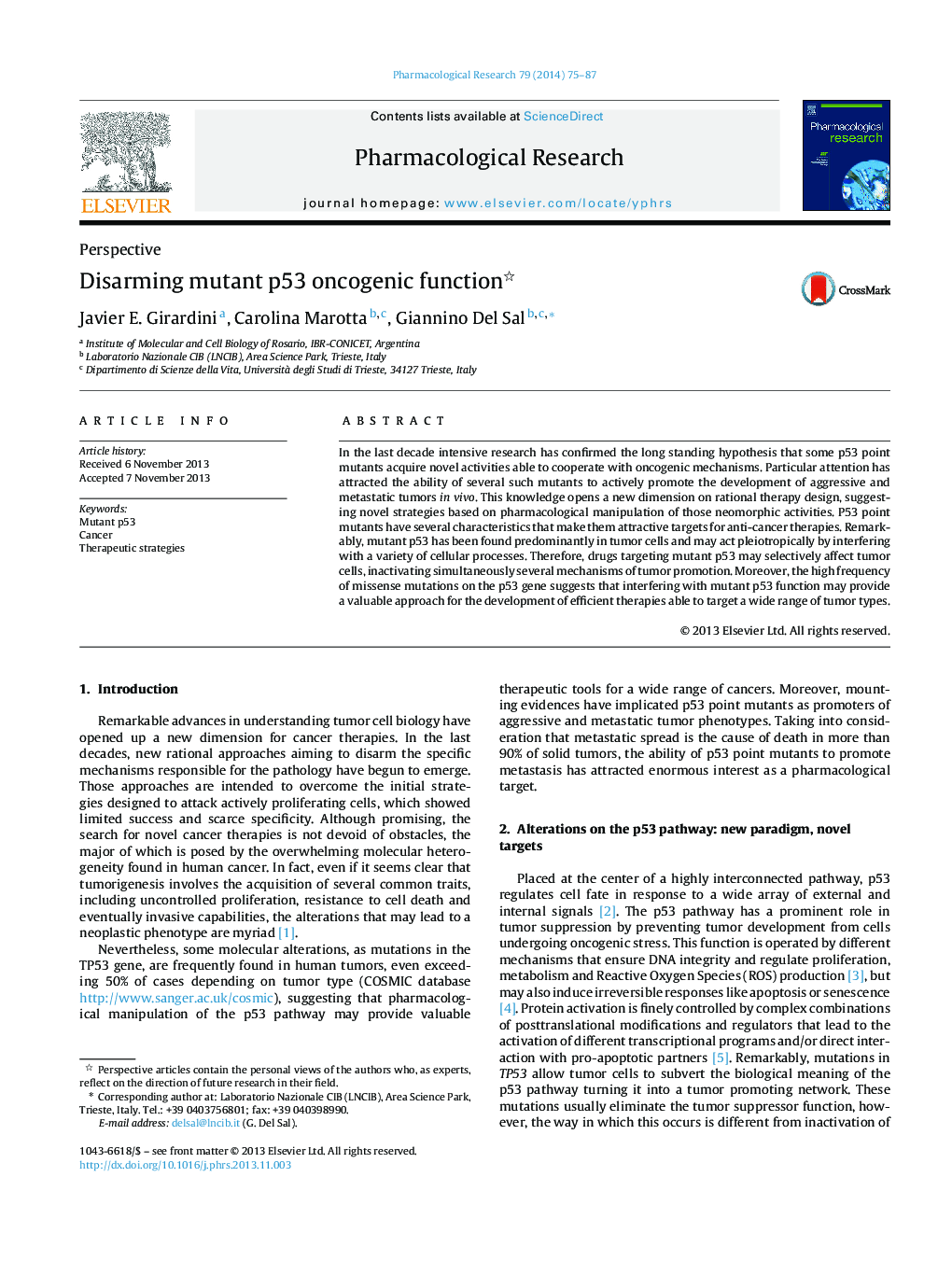| Article ID | Journal | Published Year | Pages | File Type |
|---|---|---|---|---|
| 2561996 | Pharmacological Research | 2014 | 13 Pages |
In the last decade intensive research has confirmed the long standing hypothesis that some p53 point mutants acquire novel activities able to cooperate with oncogenic mechanisms. Particular attention has attracted the ability of several such mutants to actively promote the development of aggressive and metastatic tumors in vivo. This knowledge opens a new dimension on rational therapy design, suggesting novel strategies based on pharmacological manipulation of those neomorphic activities. P53 point mutants have several characteristics that make them attractive targets for anti-cancer therapies. Remarkably, mutant p53 has been found predominantly in tumor cells and may act pleiotropically by interfering with a variety of cellular processes. Therefore, drugs targeting mutant p53 may selectively affect tumor cells, inactivating simultaneously several mechanisms of tumor promotion. Moreover, the high frequency of missense mutations on the p53 gene suggests that interfering with mutant p53 function may provide a valuable approach for the development of efficient therapies able to target a wide range of tumor types.
Graphical abstractFigure optionsDownload full-size imageDownload high-quality image (201 K)Download as PowerPoint slide
